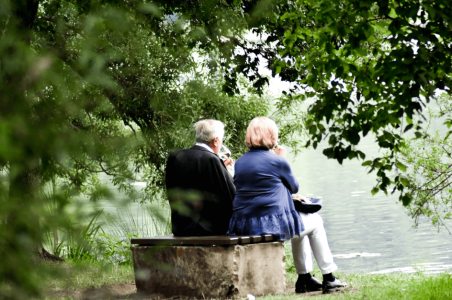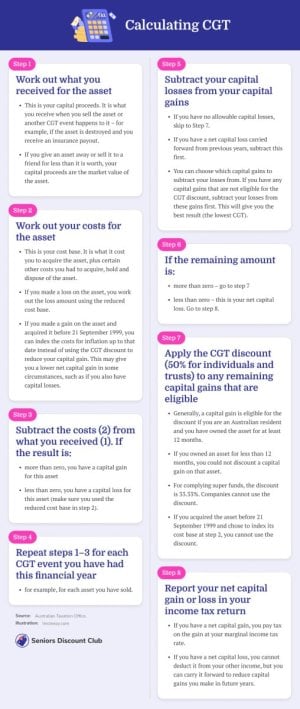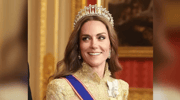Passing on the portfolio: Should you give your shares to your children before you go?
- Replies 1
As we get older, we often start thinking more about our own mortality. For those of us who have invested in the stock market, deciding what to do with our portfolio can be difficult.
Some may consider passing on their investments to their children before they pass, while others may be worried about the possible disadvantages of doing so.
So, is it a good idea for parents to transfer their investment portfolio to their children before they pass away? To answer this question, we need to look at the pros and cons of this decision.
Recently, Noel Whittaker, a money columnist for The Sydney Morning Herald, discussed this topic in one of his most recent columns, where he was asked about the best course of action in such a situation.

The person asking the question is a widow who relies on a substantial share portfolio as her main source of income. She is worried about Capital Gains Tax (CGT) and is wondering if it would be better to give some or all of her shares to her children now or to leave them in her will.
'Could you please explain the implications of leaving shares to children in your will?' she asked.
To better understand the question, first, we must analyse the context.
Here, the term 'shares' refers to stocks or equities that the widow holds in different companies. A share represents a unit of ownership in a company and entitles the shareholder to a portion of the company's profits and assets, as well as voting rights in some cases.
The widow's share portfolio refers to the collection of shares or stocks that she has purchased from various companies, and the income generated from this portfolio is her primary source of income.

According to Whittaker, when you pass away and leave shares to your beneficiaries, they will receive them at the original cost that you acquired them for, which is known as the base cost. This means that they will not be subject to Capital Gains Tax (CGT) at that time.
He even shared an example: if you bought shares for $10 each and they are now worth $30 each, your beneficiaries would be deemed to have acquired them at the original cost of $10 each, and they would only need to pay CGT on the difference between the base cost and the market value if and when they decide to sell them.
Whittaker also suggests that based on the information provided, it is unlikely that the person asking the question has a high taxable income.
Therefore, if they are interested in transferring some of their shares to their children before passing away, they could work with their accountant to determine if any CGT would be payable if they transferred small amounts each year.
Additionally, if the person is philanthropic, they could consider making a charitable donation equal to the taxable capital gains, which could help reduce or eliminate the capital gain.

How does Capital Gains Tax (CGT) work?
If you sold assets like property or shares during the year, you need to figure out whether you made a profit or a loss on each one. If you sold an asset for more than you paid for it, that's a profit or 'capital gain'. If you sold it for less than you paid for it, that's a loss.
When it comes to Capital Gains Tax, you only pay on your overall net capital gains. This means you add up all your capital gains for the year, subtract any losses, and then apply any discounts you're eligible for.
And if you're an Australian individual who's owned an asset for 12 months or more, you're entitled to a 50% Capital Gains Tax discount on that asset. So you would only pay tax on half of the overall net capital gain for that asset.
Here's an example to help explain how Capital Gains Tax (CGT) works.
Imagine that Justin, an Australian resident, bought a block of land and owned it for 18 months before selling it for a $10,000 profit. Since he didn't make any other capital gains or losses that year, he only needs to worry about this one asset.
Now, because Justin has owned the land for more than 12 months, he's eligible for a 50% CGT discount. So he only needs to pay tax on half of the profit, which is $5,000.
When Justin files his tax return, he'll declare that $5,000 as a capital gain and pay tax on it accordingly.
How to calculate the CGT myself
To make calculating your Capital Gains Tax (CGT) easier, the Australian Taxation Office (ATO) provides an online calculator and record-keeping tool that you can use — available through this link.
Additionally, if you have a myGov account, you can access the tool there and save your data for future reference. This can be helpful if you need to calculate CGT for multiple assets over time.
You can also refer to this infographic below:
Deciding whether to transfer your shares portfolio to your children before you pass away is a personal decision that depends on your individual circumstances. While transferring shares can have tax advantages, it's important to consider the potential risks and drawbacks as well.
For example, your children receiving your shares as an 'inheritance' might affect and decrease their pension payments by boosting their assets. We've provided a more thorough explanation of this situation here in this previous article — feel free to check it out.
Consulting with a financial advisor or tax professional can help you make an informed decision. Remember, this article is not financial advice, and it's essential to seek professional guidance before making any financial decisions that could impact your future or that of your loved ones.
Members, have you discussed your share portfolio and estate plans with your children or heirs? Share your thoughts with us in the comments!
Some may consider passing on their investments to their children before they pass, while others may be worried about the possible disadvantages of doing so.
So, is it a good idea for parents to transfer their investment portfolio to their children before they pass away? To answer this question, we need to look at the pros and cons of this decision.
Recently, Noel Whittaker, a money columnist for The Sydney Morning Herald, discussed this topic in one of his most recent columns, where he was asked about the best course of action in such a situation.

Is it a good idea for parents to transfer their investment portfolio to their children before they pass away? Credit: Unsplash/Sven Mieke.
The person asking the question is a widow who relies on a substantial share portfolio as her main source of income. She is worried about Capital Gains Tax (CGT) and is wondering if it would be better to give some or all of her shares to her children now or to leave them in her will.
'Could you please explain the implications of leaving shares to children in your will?' she asked.
To better understand the question, first, we must analyse the context.
Here, the term 'shares' refers to stocks or equities that the widow holds in different companies. A share represents a unit of ownership in a company and entitles the shareholder to a portion of the company's profits and assets, as well as voting rights in some cases.
The widow's share portfolio refers to the collection of shares or stocks that she has purchased from various companies, and the income generated from this portfolio is her primary source of income.

If you leave your shares to your children in your will, they will inherit the shares at the market value at the date of your death. Credit: Unsplash/Wance Paleri.
According to Whittaker, when you pass away and leave shares to your beneficiaries, they will receive them at the original cost that you acquired them for, which is known as the base cost. This means that they will not be subject to Capital Gains Tax (CGT) at that time.
He even shared an example: if you bought shares for $10 each and they are now worth $30 each, your beneficiaries would be deemed to have acquired them at the original cost of $10 each, and they would only need to pay CGT on the difference between the base cost and the market value if and when they decide to sell them.
Whittaker also suggests that based on the information provided, it is unlikely that the person asking the question has a high taxable income.
Therefore, if they are interested in transferring some of their shares to their children before passing away, they could work with their accountant to determine if any CGT would be payable if they transferred small amounts each year.
Additionally, if the person is philanthropic, they could consider making a charitable donation equal to the taxable capital gains, which could help reduce or eliminate the capital gain.

Capital gains tax (CGT) is the tax you pay on profits from selling assets, such as a share or a property. Credit: Unsplash/Jeff Sheldon.
How does Capital Gains Tax (CGT) work?
If you sold assets like property or shares during the year, you need to figure out whether you made a profit or a loss on each one. If you sold an asset for more than you paid for it, that's a profit or 'capital gain'. If you sold it for less than you paid for it, that's a loss.
When it comes to Capital Gains Tax, you only pay on your overall net capital gains. This means you add up all your capital gains for the year, subtract any losses, and then apply any discounts you're eligible for.
And if you're an Australian individual who's owned an asset for 12 months or more, you're entitled to a 50% Capital Gains Tax discount on that asset. So you would only pay tax on half of the overall net capital gain for that asset.
Here's an example to help explain how Capital Gains Tax (CGT) works.
Imagine that Justin, an Australian resident, bought a block of land and owned it for 18 months before selling it for a $10,000 profit. Since he didn't make any other capital gains or losses that year, he only needs to worry about this one asset.
Now, because Justin has owned the land for more than 12 months, he's eligible for a 50% CGT discount. So he only needs to pay tax on half of the profit, which is $5,000.
When Justin files his tax return, he'll declare that $5,000 as a capital gain and pay tax on it accordingly.
How to calculate the CGT myself
To make calculating your Capital Gains Tax (CGT) easier, the Australian Taxation Office (ATO) provides an online calculator and record-keeping tool that you can use — available through this link.
Additionally, if you have a myGov account, you can access the tool there and save your data for future reference. This can be helpful if you need to calculate CGT for multiple assets over time.
You can also refer to this infographic below:
Deciding whether to transfer your shares portfolio to your children before you pass away is a personal decision that depends on your individual circumstances. While transferring shares can have tax advantages, it's important to consider the potential risks and drawbacks as well.
For example, your children receiving your shares as an 'inheritance' might affect and decrease their pension payments by boosting their assets. We've provided a more thorough explanation of this situation here in this previous article — feel free to check it out.
Consulting with a financial advisor or tax professional can help you make an informed decision. Remember, this article is not financial advice, and it's essential to seek professional guidance before making any financial decisions that could impact your future or that of your loved ones.
Members, have you discussed your share portfolio and estate plans with your children or heirs? Share your thoughts with us in the comments!








